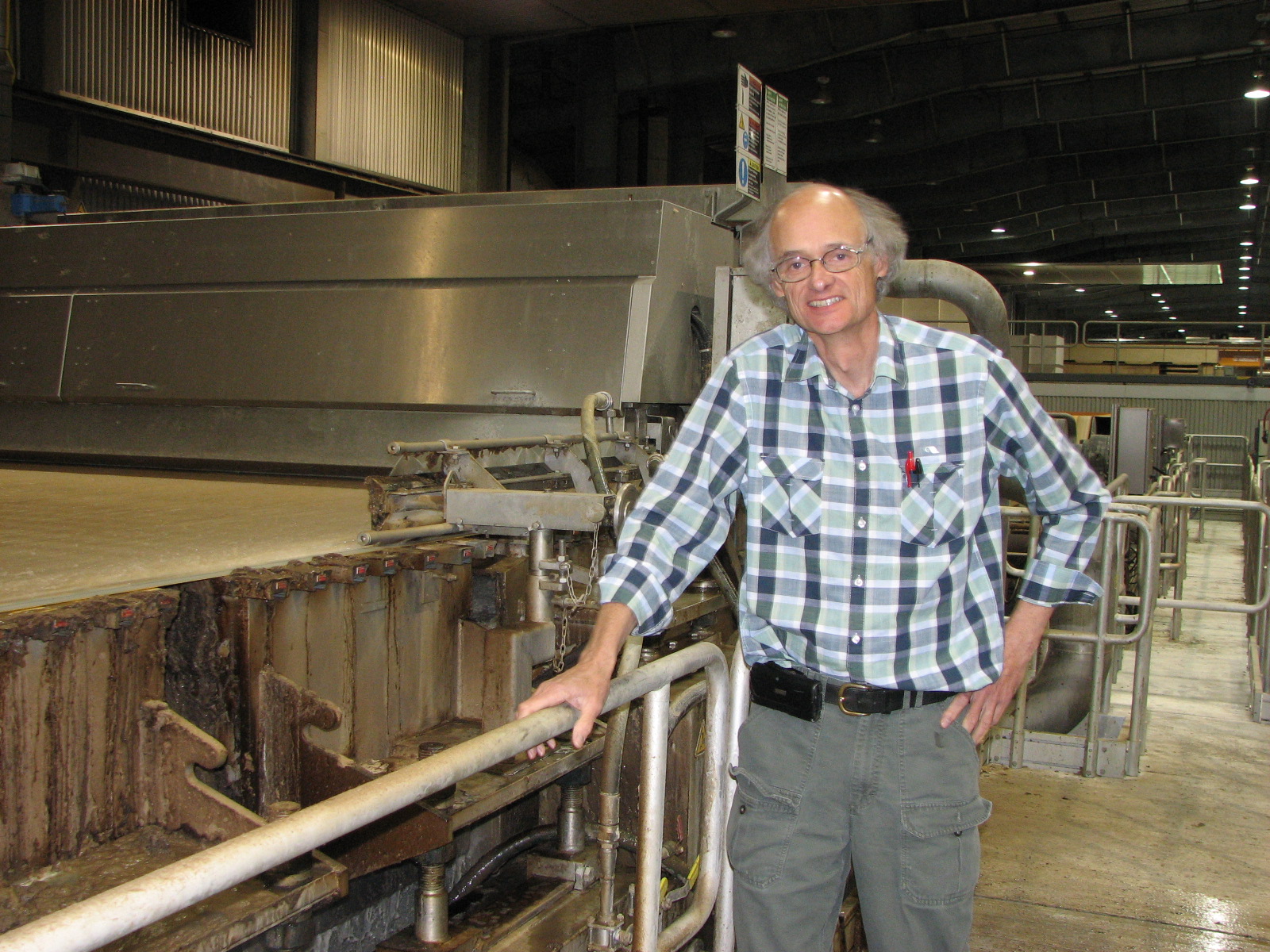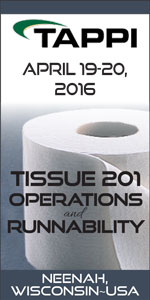 |
||||||||
| March 16, 2016 | ||||||||
| Digital hydraulics |  |
|||||||
|
· Subscribe to Ahead of the Curve · Newsletters · Ahead of the Curve archived issues · Contact the Editor
|
The Evolving Role of the Mill Engineer  According to Jacques Perrault, Cascades, “Engineers coming from this industry are seen as some of the best because of the complexity of a pulp and paper mill.” By Graeme Rodden This is an advance-look excerpt from the cover story of the March/April issue of Paper360°. Although their numbers may be diminished, the role of an engineer in a pulp, paper or board mill is constant: to solve problems. How they solve these problems has changed. Technology has brought about a huge transformation. For the most part, it helps—but sometimes the massive amount of information now available at a touch of a button can be overwhelming. Jacques Perrault, senior engineer, papermaking for Cascades, notes that some of the evolution of an engineer’s role reflects the changing conditions in the industry. What are the main issues facing the pulp and paper mill engineer today? Doug Sweet, Doug Sweet & Associates, said that generally, the mills don’t have enough engineers. Taking it to the extreme, without the technical people who now work for suppliers or consultants, some mills would be in a real bind. Dick Reese, Dick Reese and Associates, adds that the days of the corporate engineering department are mostly gone, a fact noted by others interviewed. “There are no engineering departments left; maybe one guy, even at the big producers. The industry used to have companies that had strong engineering departments, that knew how to design a paper machine and were aware of what would work and what wouldn’t. Now, it’s tough for people to know who to ask.” Reese adds, “there are too few and they are spread very thin. Most mills don’t have much capacity to work with so any problem must be significant before it is addressed.” As has been noted by many, a lot of onus has been put on the suppliers. Contracting out to the supplier or consultant is here to stay. With the increasing sophistication of the mill machinery, one could use an automotive analogy: that modern car engines are so sophisticated, the days of the do-it-yourself mechanic is over. Sweet agrees, to a point. “Processes are more complex so you do need to bring in specialists for some things. It’s a must.” With fewer technical staff, it is harder to concentrate on the core business. What used to be regular routine studies are now being ignored or not done frequently enough; while the papermaking process can be forgiving, there are occasions when neglect can cause a huge negative effect. Work such as new product development or solving chronic issues takes longer and is more difficult. Some mills have problems that have existed for years but could not be addressed because of a lack of staff, knowledge and/or money. As the old axiom goes: You don’t know what you don’t know. Reese adds that the “wily old vets” are retiring and younger crews don’t understand what’s needed on a paper machine to get good performance. Resources in a mill are dwindling. The key is to have an experienced and knowledgeable progressive mill manager who knows how to make good things happen. Wyck Newberry, Tidewater Recruiting, echoed the issue of having to do more with less. “Companies are running leaner. Engineers need to wear many different hats, from capex to reliability. And then they are worried about outsourcing and losing their jobs.” Perrault says there is another aspect to this workload increase: less time to travel to meetings such as PaperCon. Networking is important but the opportunities to do so are becoming rarer. Thus, engineers must adopt new technology such as webinars and Skype. Still, he adds, there is nothing as good as face-to-face communication. To that end, Jeff Reese, International Paper, notes that representatives from TAPPI’s Paper and Board and Engineering divisions have developed tracks for the PaperCon technical program that will help facilitate networking and knowledge sharing for industry engineers and others. “One of the tracks at this year’s conference will discuss issues and find solutions associated with the changing roles of papermakers and engineers in the pulp and paper industry. The track is called ‘Who is going to do?’ and it is based on a quote from former papermaking colleague Joe Pham, who once said to a group of suppliers and corporate support, ‘You make a list. You make a list. You make a list. Everybody makes a list. Who is going to do?’” The track will include panel discussions, roundtables, technical papers, and Success Stories aimed at helping papermakers find state-of-the-art resources to be successful in today’s paper mill, Reese reports. Things will kick off with a roundtable discussion identifying issues and potential solutions, and wrap up with a summary roundtable where participants will share what they plan to do differently back at their mills. (PaperCon 2016 will take place May 15-18 in Cincinnati, Ohio; papercon.org.) The industry must also battle some negative perceptions when attracting engineers—but the view of our industry as regressive is false, states Perrault. Part of this may have to do with the decline of the graphic paper market, but tissue and board are doing well. “Engineers coming from this industry are seen as some of the best because of the complexity of a pulp and paper mill,” he says. “The industry is very high-tech. The amount of machining tolerance that has to go into a headbox is mind boggling.” In spite of the challenges today’s engineers face, the mill is still a great place to work, says Sweet. “I love what I do. I have fun finding solutions to problems. It is still an enjoyable industry where it is safe to try things; mills are open to change and improvement.” Graeme Rodden is senior editor, North and South America, for Paper360°. Now that you are Ahead of the Curve, stay there by joining TAPPI. |
|||||||
 |
||||||||
